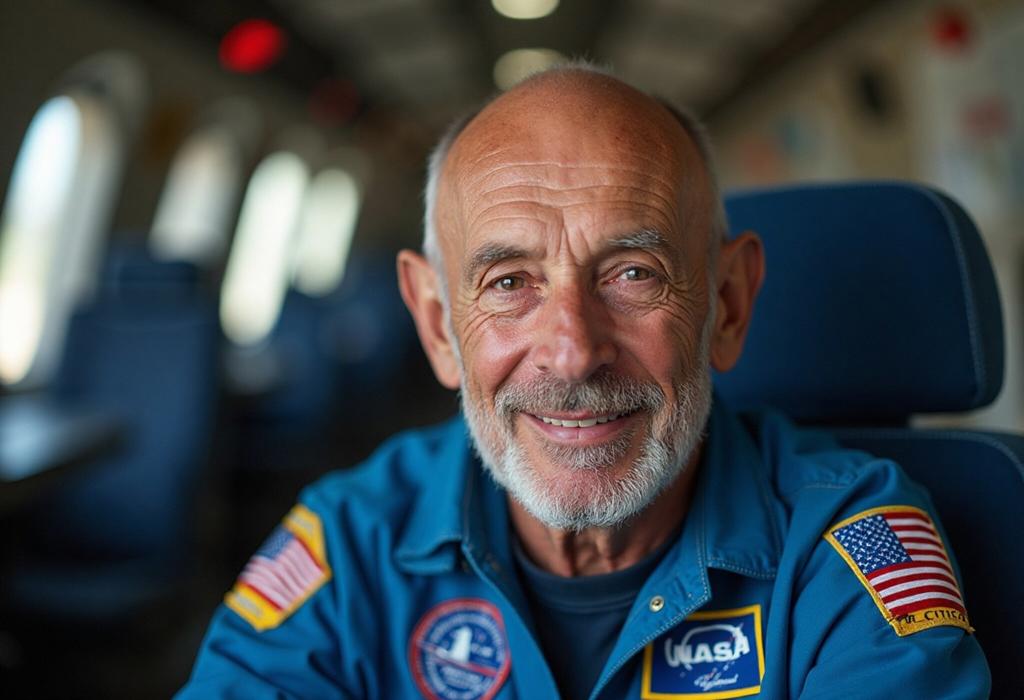On Saturday, April 19, NASA astronaut Don Pettit, along with Russian cosmonauts Alexey Ovchinin and Ivan Vagner, is set to complete an extraordinary journey aboard the International Space Station (ISS) after 220 days in orbit. Their descent will begin at 5:57 p.m. EDT, culminating in a parachute landing outside Dzhezkazgan, Kazakhstan, at 9:20 p.m. EDT. This mission holds particular significance for Pettit, marking his return on his 70th birthday, making him the oldest active member of NASA's astronaut core. The crew's journey involved an impressive 3,520 orbits around the Earth and spans a total travel distance of 93.3 million miles since launch from the Baikonur Cosmodrome last September.
Pettit's accomplishments have been notable; he has completed four space flights, racking up a total of 590 days in orbit. During a handover ceremony on Friday, he passed command of the ISS to Japan's Takuya Onishi, who will lead Expedition 73. This changeover illustrates the collaborative spirit of space research, drawing on the experiences and skills of international astronauts.
As they prepare for re-entry, the astronauts' health and safety will be monitored closely by NASA and Russian recovery teams, who will conduct initial medical checks and connect the astronauts with their families. Following this, the crew will split, with Ovchinin and Vagner heading back to Russia, while Pettit returns to Houston for further tests and rehabilitation.
However, their return comes at a time when concerns about the ISS itself are rising. NASA's Aerospace Safety Advisory Panel recently highlighted significant challenges facing the ISS, including air leaks attributed to metal fatigue, funding shortfalls, and uncertainties surrounding resources necessary for proper operation. The scheduled retirement of the station in five years poses further threats, with officials stressing the need for adequate budget allocations to ensure controlled, safe deorbiting of the ISS. Overall, the ISS program finds itself in a precariously riskiest phase, with many operational challenges demanding immediate attention, as underscored by panel member Rich Williams.
In conclusion, while this mission successfully underscores human achievement in space exploration, it simultaneously highlights pressing issues that demand resolution if we are to maintain a reliable and safe presence in low Earth orbit. The implications of these challenges extend not only to current operations but also to future plans for space exploration, including potential new partnerships and missions that may arise following the ISS's retirement. This dual narrative—the celebration of achievements alongside the recognition of risks and necessary reforms—presents a complex but necessary discussion about operational realities in space research and exploration.
AD
AD
AD
AD
Bias Analysis
Bias Score:
30/100
Neutral
Biased
This news has been analyzed from 25 different sources.
Bias Assessment: The news article provides a balanced account of significant events surrounding the return of Don Pettit and his crew, incorporating their achievements while carefully addressing the problems facing the ISS program. While praising the astronauts' accomplishments, it does not shy away from reporting on the challenges at NASA and the ISS, indicating a moderate level of bias as it steers clear of demonizing any particular individual or entity and acknowledges multiple viewpoints without overemphasizing criticism or praise.
Key Questions About This Article




